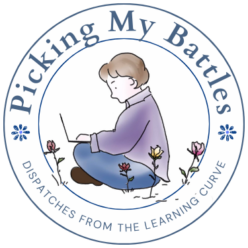Pneumonia benched me well before Covid-19 invaded neighboring New York State, but my son’s severely compromised immune function was already forcing considerations about whether and how to keep working at the residential school where I teach.
Our school immediately implemented Herculean measures to reduce the likelihood of infection. The experiences of other assisted living communities across the nation, however, suggested that any infection, once introduced, would spread rapidly. I love my school kids, but knew working during the pandemic might mean living away from my family. When my body turned on me, I was almost grateful to surrender the decision and took a leave of absence as our family settled into the stay home directives that, while not all that new for most Vermonters, felt like a different normal.
When I started considering family safety, the virus was sweeping through cruise ships. There were a handful infections in Washington state, and the media zeitgeist was proclaiming that the virus “only” endangered the elderly and people with chronic illnesses (about 157 million people in the US), as if that made it more tolerable.
One night early in March, however, I caught an interview with Yale physician, Nicholas Christakis, predicting the trajectory the infection would soon take. Identifying schools as disease vectors (as any parent or teacher weathering flu and strep season can attest), he advocated nationwide closures. “Flatten the Curve“ hadn’t been coined, but he was articulating the strategy: slow the spread, reduce the load on the healthcare system, and improve the odds.
As March and the pandemic progressed, Christakis seemed like Cassandra delivering disturbingly accurate warnings, heeded only when case numbers and fatalities began to skyrocket.
I remember marveling at extraordinary examples of solidarity by people from all walks of life filling my Facebook feed when Americans did adopt the social distancing guidelines already in place in Europe. There were some doubting the seriousness of the disease or disregarding how their continued mobility might endanger others, but videos of people making masks, entertaining each other, organizing school services and lunches for kids and families were brief testaments that we were all at least trying to be in this together.
Then the economy, already wobbling under volatile oil futures and markets, imploded. Poorly maintained government safety nets struggled to expand and accommodate millions of newly unemployed people. Suddenly the stay home directives were not just about flattening an abstract curve, they were about individual rights, paychecks, and haircuts.
I don’t have much sympathy for people screaming for haircuts, but at least 40% of adults in the United States don’t have $400 on hand to cover an emergency. That means a lost paycheck could easily translate to a lost roof or food. In regions that have not yet seen spikes in the numbers, the prevention can easily seem worse than the disease.
I had just started programming in 1996 when I first saw a program crash because an end-user had tried to enter the date ‘2001’ in a two-digit year field. We fixed that particular issue pretty quickly, but as we went through our other programs, we realized how many applications were vulnerable. Y2K work wasn’t just bread and butter for the next few years, it was steak and caviar.
That New Year’s Eve, I brought home a laptop to login to work and monitor for any SNAFUs. As midnight rolled around, I wondered if many programs would fail. Would the “major” systems around the world make the jump successfully?
The next morning, there had been a few hiccups but no apocalypse. Newscasters seemed almost disappointed that more things hadn’t gone wrong, glossing over the fact that the millions of programmers who had been updating systems for the previous three or four years had made that possible.
Right now, people are being asked to accept hardships to make sure that as much of our worrying as possible is for ‘nothing’. Some people, even offering themselves as sacrifices, are willing to play the lottery and advocate for reopening the country. With one journal, however, suggesting that school closures alone prevent “only” 2-4% of Covid-19 related fatalities (2000-10,000 lives depending on projections) and new reports of hospitalizations and fatalities among younger, healthier people, reopening the “country” is a lottery that will trade lives for paychecks.
But too many missed paychecks can also cost lives.
Some (including me) would argue in favor of securing the social and digital safety nets to enable as many people as possible to stay home longer and reduce illness and contagion. People advocating the alternative, however, do have valid concerns. Safety nets are expensive. Any vaccine could be at least a year away. There’s no confirmation, yet, that surviving the disease confirms permanent immunity, meaning that this could be a question of thinning the herd rather than building herd immunity. Stay home directives could be simply delaying the inevitable.
Less than a century ago “The Lottery”, by Shirley Jackson, depicted a modern version of a “brutal ancient rite” taking place in some version of Bennington, Vermont. Townspeople drew lots to determine who would be sacrificed by stoning to ensure a good harvest. The New Yorker and Jackson received mountains of complaints and abuse from shocked readers who could not countenance the idea of even fictional human sacrifice in a modern setting.
We aren’t choosing lots or stoning people to death, but in the end, we are being asked not just what we personally are willing to surrender for the economy or a flatter curve. We are being asked who we are willing to sacrifice to achieve either goal. How many and which people are disposable?
On our very micro level, I know I would give my life to keep my kids safe and fed. I also know it’s easier to be a martyr than a problem solver. At some point, the pandemic and the economy will force us to ask the tougher question of how to balance Thing1’s health (and life) against my need to work, against Thing2’s right to go to school and grow. When do we “reopen”? We’ll find some answers in logistics. Other answers will require making ethical choices far more difficult than drawing lots.
Like this:
Like Loading...








